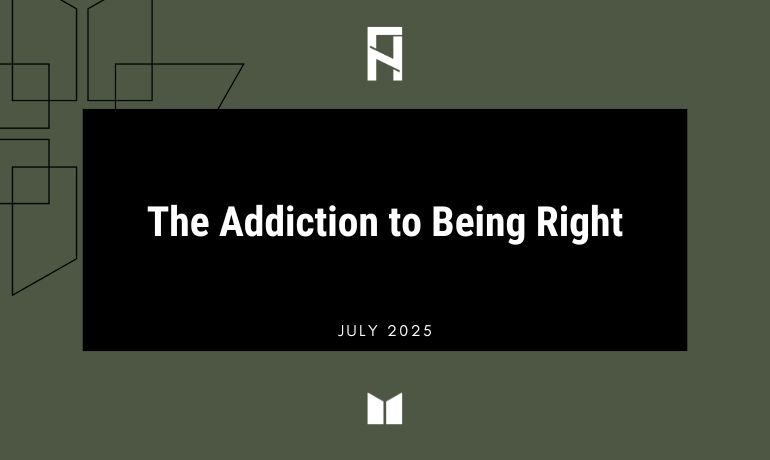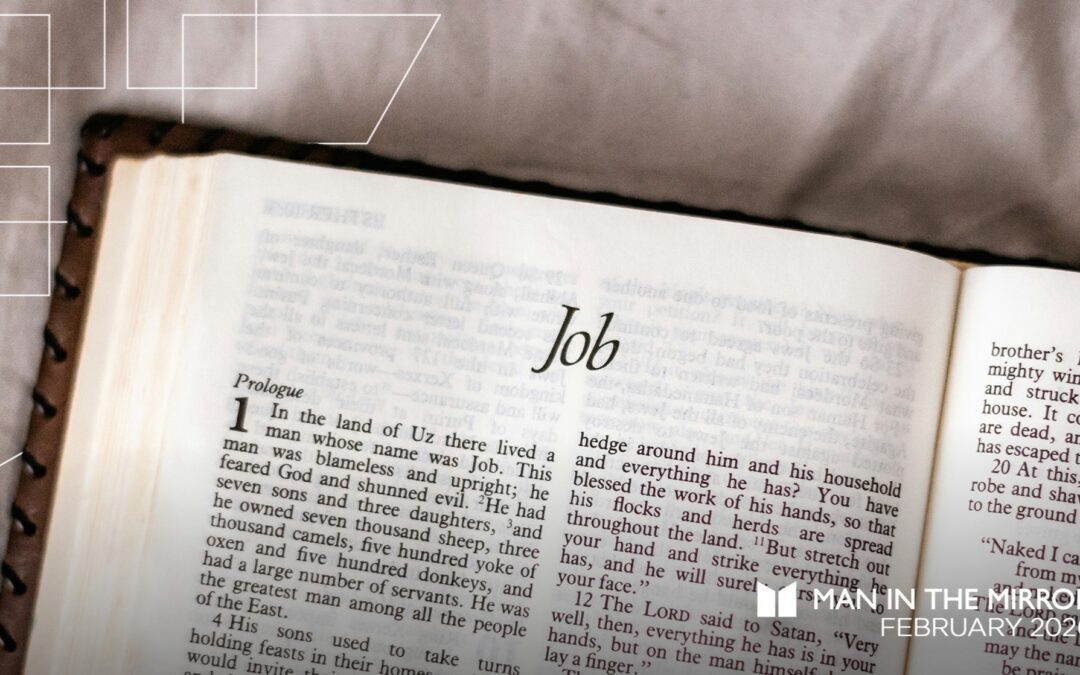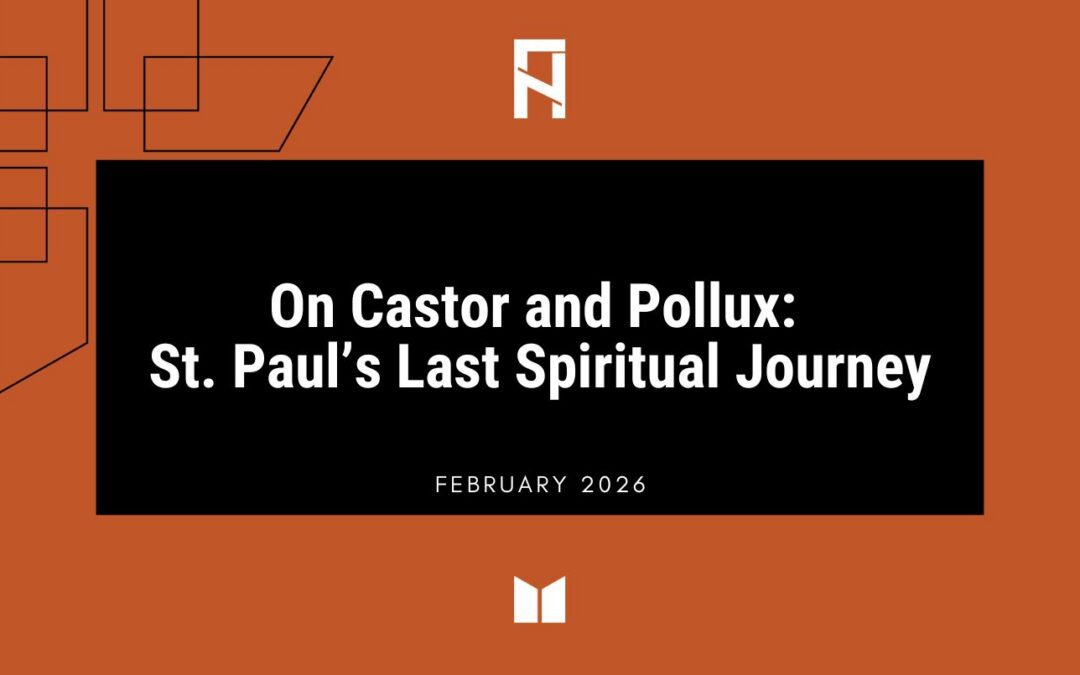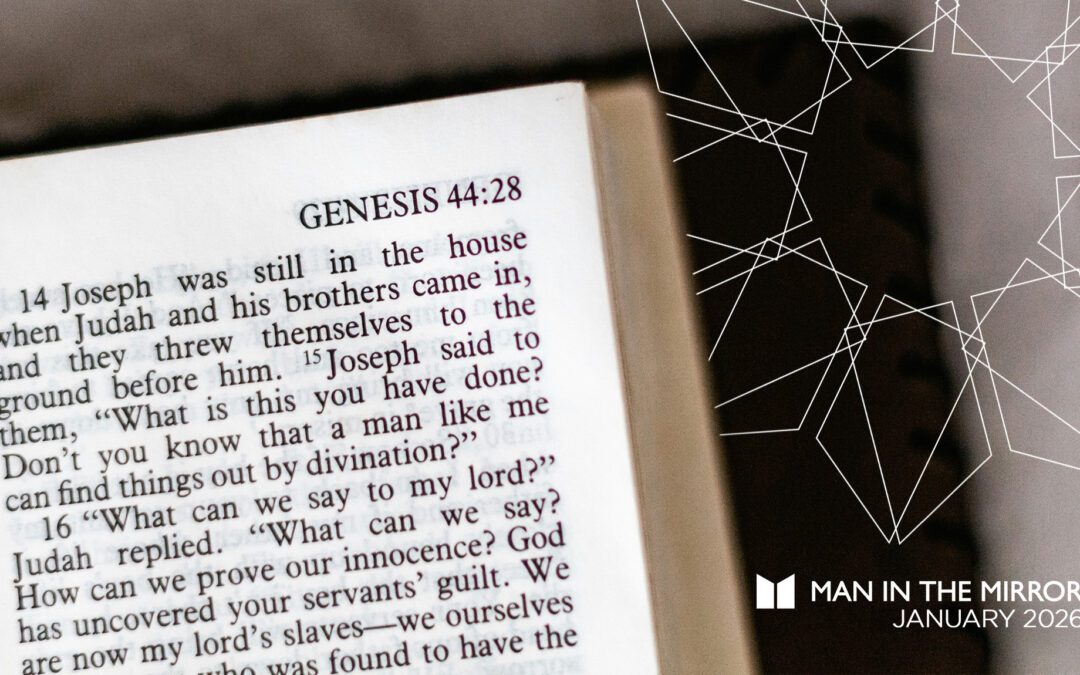There is a particular kind of heat that rises in the human soul just before a battle. It is not the heat of a furnace, which forges and purifies, but the deep, seismic thrum from a volcano, a pressure building silently against stone. One can feel it in the tightening of the jaw over something as trivial as the proper way to load a dishwasher (don’t get me started).
It’s a familiar flush that comes when scrolling through social media, encountering an opinion so galactically, offensively wrong that the fingers begin to twitch over the keyboard, already composing the devastatingly logical reply. It is the urgent, almost physical, need to have the last word, to plant the flag of one’s own correctness on the conquered territory of a conversation.
This phenomenon is more than mere disagreement. It is a modern spiritual affliction, an addiction to being right. Like any addiction, it promises a moment of euphoric release—the dopamine hit of a well-executed counterpoint, the smug satisfaction of watching an opponent retreat—but it leaves in its wake a landscape of broken relationships, silent dinners, and comment threads radiating with a hostility that is almost palpable.
We tell ourselves we are warriors for truth, valiant defenders of principle in a world gone mad. But if we are honest, the person we are most often defending is not a noble cause, but our own fragile ego, cloaked in the armor of unassailable logic.
Welcome to the Jungle
This angry compulsion is a form of idolatry, subtle but pervasive. It is the worship of the self-as-intellect, a belief that our worth is contingent upon our correctness. To be proven wrong is not just an intellectual misstep; it feels like an existential threat. In a society that has largely untethered identity from community, faith, and place, we have increasingly moored it to the shifting sands of our opinions. Consequently, we fight for them with the desperation of a people fighting for their very being.
The contemporary addiction to being right is not a sudden aberration. It is the logical endpoint of several converging cultural and technological currents. We live in what sociologists call a “knowledge economy,” where value—both monetary and social—is generated not by what one can build with their hands, but by what one can articulate with their mind. In this environment, our ideas become our assets, and our intellectual positions become markers of our identity and status. To have the “correct” take on a political issue, a cultural trend, or a theological doctrine is to signal one’s membership in the right tribe.
Digital platforms have weaponized this tendency. Social media is not a town square; it is a Colosseum of competing performances.
Every post, every comment, every subtweet is an act of identity-curation. The algorithms, designed for engagement, reward not nuance and reflection, but outrage and certitude. They push us toward the poles, creating echo chambers where our own “rightness” is endlessly affirmed by a chorus of the like-minded. To venture out of this chamber is to enter a battlefield, and to lose a debate in this public arena feels like a public humiliation.
New Babel
This condition bears a striking resemblance to one of humanity’s oldest stories of architectural hubris: the Tower of Babel. In the plains of Shinar, the people of Genesis 11, flush with technological prowess and a unified purpose, decide to build a city and a tower with its top in the heavens, to “make a name for themselves.” This is a project of collective ego. It is humanity attempting to secure its own significance, to build a monument to its own rightness that reaches to the very throne of God.
The Babel project is not about shelter or community in the truest sense; it is about self-glorification. God’s response is not to smite the tower with lightning, but to confuse their language. He introduces misunderstanding and friction into their communication. The very tool of their unity—their shared language—becomes the source of their division.
This is a profound metaphor for our current condition. Our digital towers—our carefully constructed profiles, our echo chambers, our airtight arguments—are modern attempts to “make a name for ourselves.” We use the common language of reason, data, and even scripture not to build bridges of understanding, but to construct impenetrable fortresses of the self. Inside this fortress, the ego is safe. When another person presents a differing view, it is not received as an invitation to dialogue but as a siege engine at the gates. The goal is no longer to seek truth together, but to repel the attack and preserve the integrity of the fortress at all costs.
The tragedy of Babel was not the cessation of construction, but the fracturing of humanity. Likewise, the tragedy of our addiction to being right is not that we fail to convince our opponents, but that we destroy the possibility of communion in the process.
The Defender of Truth vs. The Defender of Self
At this point, a reasonable objection arises. Does this mean that truth does not matter? Is the Christian call to a life of intellectual apathy, a mushy relativism where all viewpoints are equally valid? Is there no place for conviction, for defending the faith, for standing firm on principles of justice and morality?
This is the critical distinction we so often fail to make: the vast and treacherous territory that separates the defense of truth from the defense of the self. The Christian faith is not ambivalent about truth. It makes audacious, exclusive claims about the nature of God, the condition of humanity, and the person of Jesus Christ. The call to “contend for the faith that was once for all delivered to the saints” (Jude 1:3) is a serious one. Apathy in the face of falsehood is not a virtue; it is a dereliction of duty.
The problem lies not in the act of defending truth, but in the agent who is doing the defending.
Our fallen human nature, what the theologians call our sinful disposition, is masterfully skilled at co-opting noble causes for the service of the self. We take up the banner of “Truth” but march to the drumbeat of our own ego. We believe we are acting as God’s righteous defenders when, in reality, we are merely using God’s truth as a cudgel to prove our own superiority.
This is a tension rooted in the biblical narrative of Creation and Fall. God created humanity with reason, logic, and the capacity to discern and delight in the truth. Our minds are a gift, intended to lead us into a deeper knowledge of God and His creation. This is the goodness of the created order. The Fall, however, corrupted this faculty. Reason, once a window to God, became a mirror reflecting the self. Instead of using our minds to understand God’s world, we began to use them to justify our own rebellion. Adam and Eve’s first response after their disobedience was not repentance, but a series of arguments and blame-shifting. Their intellect was immediately employed in the service of self-defense.
The God Who Chose to Lose
If the addiction to being right is a form of idolatry rooted in the pride of a fortified self, then the cure must be a radical act of self-disarmament. The Christian faith provides the ultimate blueprint for this act, and it is found not in a set of rules or techniques, but in the very identity of its central figure. The Apostle Paul, writing to a church in Philippi that was struggling with internal division and “selfish ambition or vain conceit,” points them to the ultimate example: Jesus Christ.
His argument, found in Philippians 2:5-8, is one of the most theologically dense and spiritually challenging passages in all of Scripture. He urges the Philippians to have the same mindset as Christ Jesus, who:
“…though he was in the form of God, did not count equality with God a thing to be grasped, but emptied himself, by taking the form of a servant, being born in the likeness of men. And being found in human form, he humbled himself by becoming obedient to the point of death, even death on a cross.”
This is the doctrine of kenosis, from the Greek word for “emptying.” It is the logic that stands in absolute opposition to the logic of the fortress of the self. Consider its implications. The one being in the entire universe who is, by definition, unimpeachably and eternally Right, chose not to weaponize His rightness. He “did not count equality with God a thing to be grasped”—or, as some translations render it, “a thing to be exploited for his own advantage.” His infinite correctness, His divine status, was not something He clung to or used to dominate. Instead, He “emptied himself.” He voluntarily set aside the privileges of His station, not to become less than God, but to take on the role of a servant.
This is the model that dismantles our addiction to being right. It reframes the goal of human interaction. If Christ is our model, then in any disagreement—whether with a spouse, a colleague, or an online stranger—the primary question ceases to be “How can I win?” and becomes “What would love require of me in this moment?” Sometimes, love requires the firm, clear articulation of truth. But more often than we are comfortable admitting, love requires us to willingly lay down our “right” to be right. It requires us to absorb a blow to our ego for the sake of preserving a relationship. It requires us to prioritize the person over the point.
This is not an act of weakness; it is an act of profound spiritual strength. It is possible only for a person whose identity is so secure in the love and acceptance of Christ that they no longer need the cheap, fleeting validation of winning an argument.
The End of Being Right
A person who is truly secure in their ultimate “rightness” with God through grace can afford to be “wrong” in a temporal debate. They can lose the battle for the last word because they have already won the war for their soul. They can let go of the need to build and defend their own fortress because they already dwell in the unshakeable city of God.






